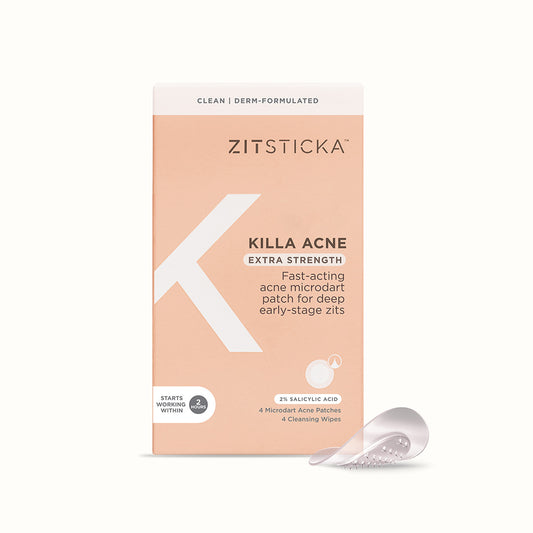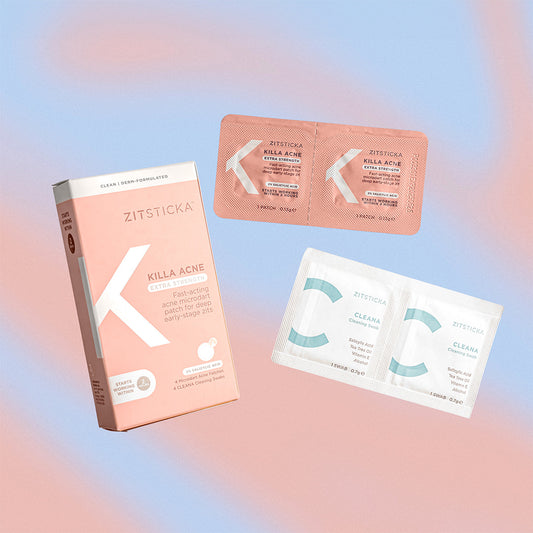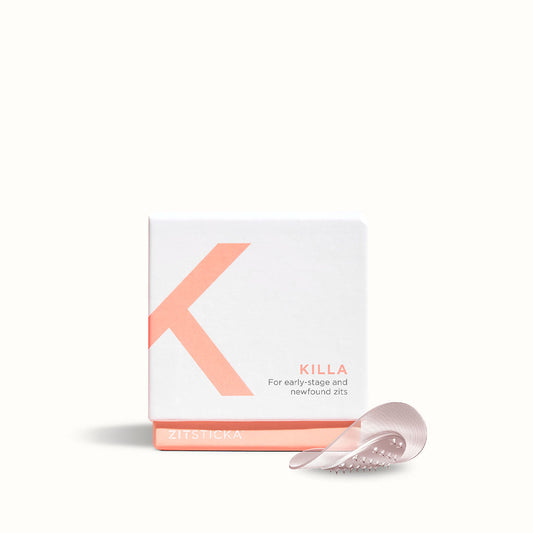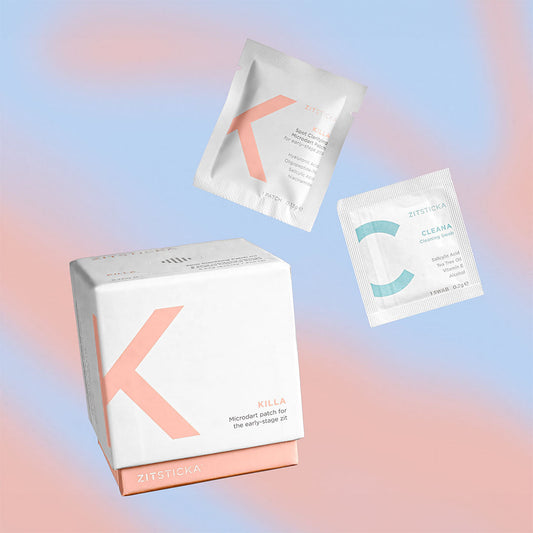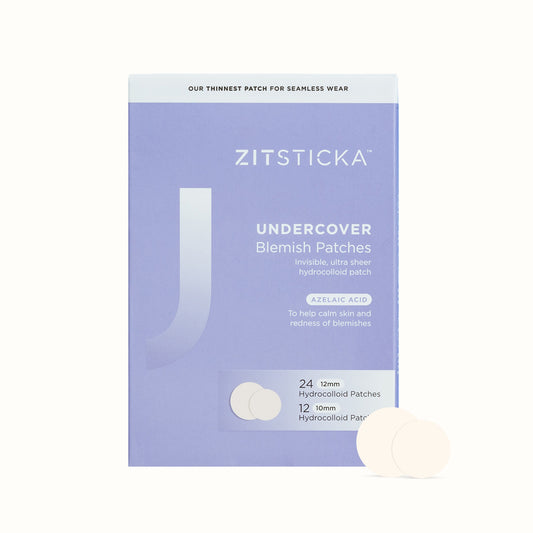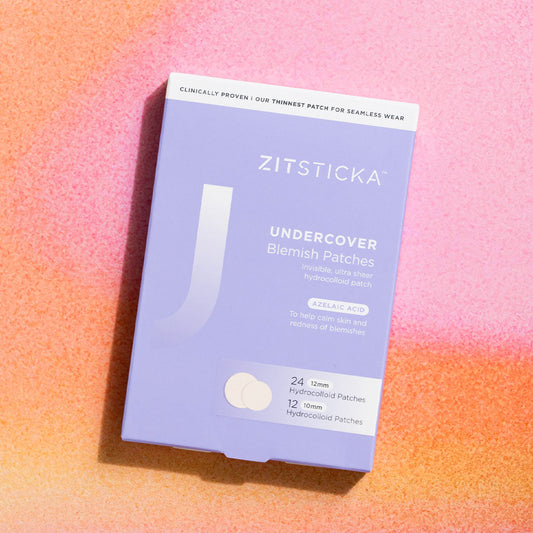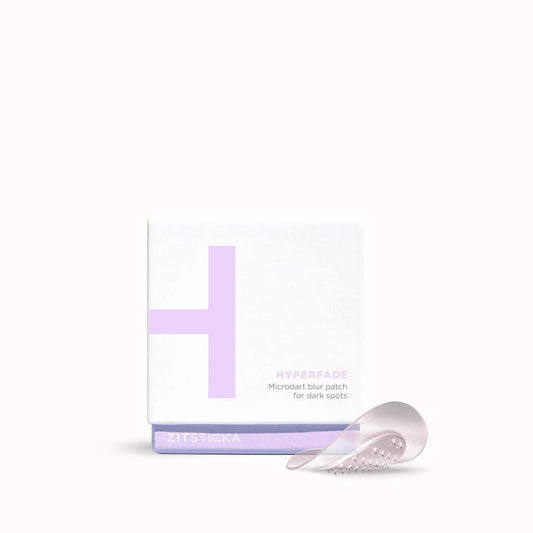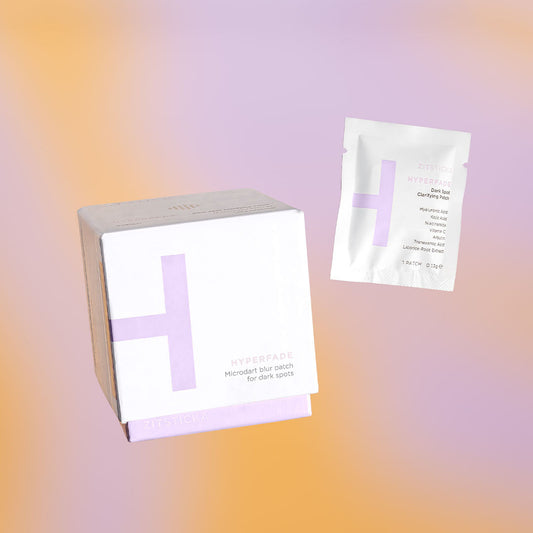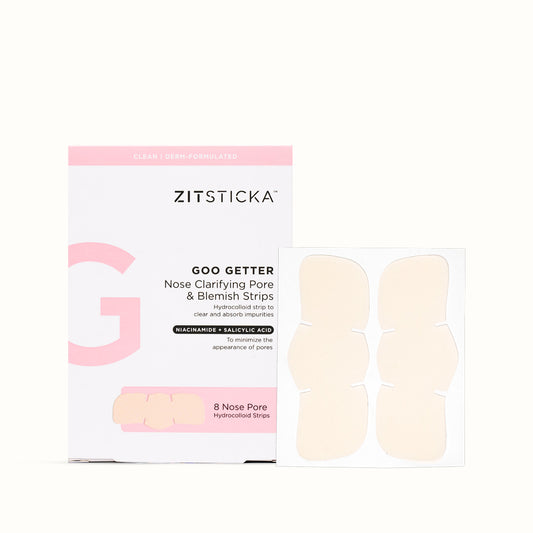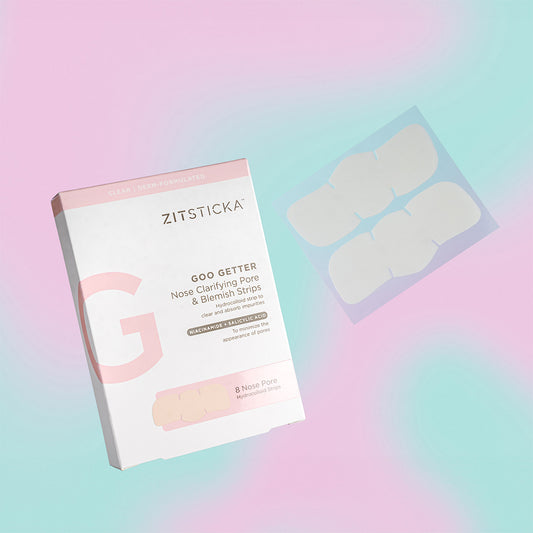The first time someone recommended I introduce a chemical exfoliant into my skincare routine, I immediately thought of Samantha Jones’ ill-fated foray into the world of chemical peels in Sex and the City. “Many thanks for the tip, well-meaning stranger,” I thought. “But I think I’ll give the chemicals a pass, lest I wind up with a Freddie Kruger hue of my own.”
Don’t let the ‘chemical’ in chemical exfoliators spook you, like it did me. You will be doing your skin a terrible disservice. I thought my days of possessing ‘baby skin’ were decades behind me—being a fully-formed human woman and all—but since slathering this scary sounding but gentle product onto my face, I can confidently say that touching my face is like stroking a blouse crafted from imported mulberry silk. 'Honestly, do I even have pores?!,' i frequently whisper to my reflection.  OK. Enough. Let’s address the title of this article before I sink head-first into a narcissism spiral. While you might be tempted to reach for a physical exfoliant, it's not such a great idea if you have acne prone skin. Physical exfoliants can inflame your skin even further, and push acneic papules and pustules into the deeper layers of your skin. Welp. Chemical exfoliators, on the other hand, are skincare products that contain active ingredients, like BHA (beta-hydroxy acid), AHA (alpha-hydroxy acid) and other enzymes. Chemical exfoliators are less irritating and therefore less abrasive than physical exfoliators. If you don’t speak chemical, here is a quick breakdown of the ingredients involved and what they’ll do for you and yours:
OK. Enough. Let’s address the title of this article before I sink head-first into a narcissism spiral. While you might be tempted to reach for a physical exfoliant, it's not such a great idea if you have acne prone skin. Physical exfoliants can inflame your skin even further, and push acneic papules and pustules into the deeper layers of your skin. Welp. Chemical exfoliators, on the other hand, are skincare products that contain active ingredients, like BHA (beta-hydroxy acid), AHA (alpha-hydroxy acid) and other enzymes. Chemical exfoliators are less irritating and therefore less abrasive than physical exfoliators. If you don’t speak chemical, here is a quick breakdown of the ingredients involved and what they’ll do for you and yours:
Alpha Hydroxy Acid (AHA): These are your skin-friendly acids like lactic acid and glycolic acid. They’re water soluble and as such aren’t able to penetrate very deeply, which makes them suitable for most skin types.
Beta Hydroxy Acid (BHA): Unlike their Alpha counterpart, BHAs like salicylic acid are oil soluble, so they can (tenderly) get all up in your pore's grill, removing dead skin cells, oil and debris. If you are prone to breakouts or have oily skin, this is the one 4 u.
Enzymes: Last but not least, our little enzyme friends are trés gentle (they only break down cells on the uppermost layers of the skin) and are therefore perfect for sensitive skin types. 
According to Dr. Strachan of Aglow Dermatology, “Chemical exfoliators dissolve the connection between skin cells, resulting in faster shedding of skin.” Basically, this is important because, “exfoliation removes build up on the skin, resulting in a smoother, more luminous and even complexion and can help with some skin conditions such as acne.”
Are you new to this chemical exfoliation business? When starting out, you should expect a few seconds of tingling when first applying the product. While any sort of reaction from your skin can be disconcerting, you needn’t worry because the sensation you are feeling is just healthy skin being born. Start incorporating a chemical exfoliator into your routine 1-3 times a week and slowly increase the frequency after that.
Want more on exfoliation? This model loves 'burning her skin off' 😮
Images: @lilchinn, @myfacestory

